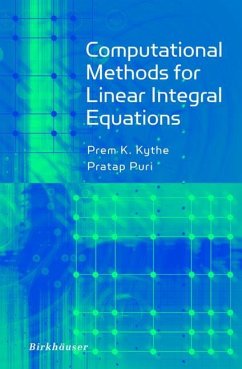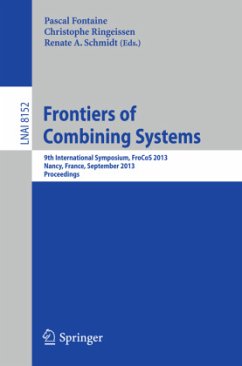
Algebraic Systems of Equations and Computational Complexity Theory
Versandkostenfrei!
Versandfertig in 6-10 Tagen
38,99 €
inkl. MwSt.

PAYBACK Punkte
19 °P sammeln!
One service methematics has rendered 'Et moi, ... , si j'avait su comment en revenir, je n'y serais point alle.' the human race. It has put common sense JulesVerne back where it belongs, on the topmost shelf next to the dusty canister labelled The series is divergent; therefore we may 'discarded nonsecse'. be able to do something with it. Eric T. Bell O.Heaviside Mathematics is a tool for thought. A highly necessary tool in a world where both feedback and nonlinearities abound. Similarly, all kinds of parts of mathematics serve as tools for other parts and for other sciences. Applying a simple...
One service methematics has rendered 'Et moi, ... , si j'avait su comment en revenir, je n'y serais point alle.' the human race. It has put common sense JulesVerne back where it belongs, on the topmost shelf next to the dusty canister labelled The series is divergent; therefore we may 'discarded nonsecse'. be able to do something with it. Eric T. Bell O.Heaviside Mathematics is a tool for thought. A highly necessary tool in a world where both feedback and nonlinearities abound. Similarly, all kinds of parts of mathematics serve as tools for other parts and for other sciences. Applying a simple rewriting rule to the quote on the right above one finds such statements as: 'One service topology has rendered mathematical physics ... '; 'One service logic has rendered computer science ... '; 'One service category theory has rendered mathematics ... '. All arguable true. And all statements obtainable this way form part of the raison d'etre of this series.














